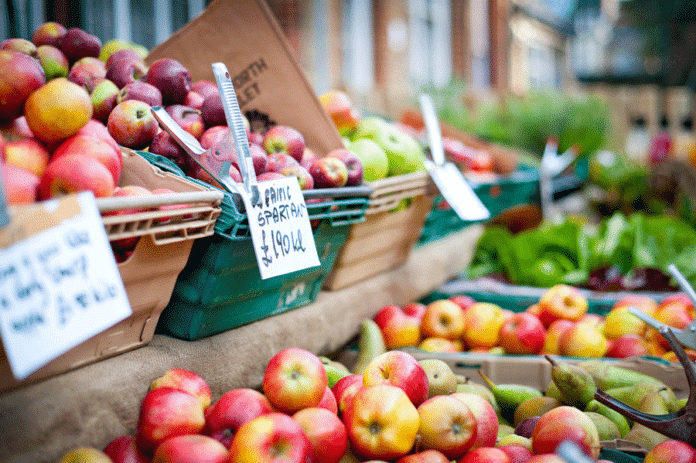Foodbanks are facing overwhelming demand and are struggling to meet the needs of the community. However, a recent study has discovered that community markets offer a sustainable solution by providing affordable food and supplies. These markets are open to everyone, regardless of income, fostering a sense of community and avoiding the loss of dignity often associated with foodbank usage. The study, published in the journal Frontiers in Sustainable Food Systems, suggests that community markets selling food, household items, and offering community-led services at subsidized rates could be a popular and sustainable addition to existing food support programs, potentially alleviating the strain on overburdened food banks.
Low-income individuals who shop at community markets expressed to researchers from Bournemouth University that they not only benefit from affordable prices but also experience a stronger sense of community and maintain their dignity compared to using foodbanks.
In contrast to the means-tested foodbanks in the UK that provide pre-packaged food parcels free of charge to those most in need, community markets offer a choice of food items, along with other goods like school uniforms and toiletries, to all members of the local community, including those with higher incomes. These markets also function as community hubs, organizing group activities for residents.
To conduct their study, the Bournemouth researchers conducted interviews with community market management, staff, and volunteers. They also interviewed individuals who have utilized both foodbanks and community markets, as well as food donors, to compare their experiences with the two models.
Dr. Rounaq Nayak, a Lecturer in Sustainability at Bournemouth University who led the study, explained, “Foodbanks have played a vital role in supporting low-income families during times of financial strain, but our research indicates that they are not a sustainable long-term solution. Donations, which foodbanks heavily rely on, have decreased as rising food prices make it challenging for donors to contribute as much.”
Unlike foodbanks, community markets do not solely rely on public or business donations. They also contribute to charity networks like FareShare through subscriptions. These charities then supply items in bulk, which are sold at subsidized prices in the markets.
Dr. Nayak elaborated, “This is where community markets have the advantage. By selling products and services at subsidized prices and reinvesting the revenue from sales into future bulk purchases and charity memberships, they create a more sustainable model. Beneficiaries expressed their preference for choosing their own food items rather than receiving pre-packed parcels, which they felt compromised their dignity.”
Shoppers appreciated that community markets offer a wider range of fresh and frozen food options compared to the predominantly dried, tinned, and processed foods found in foodbank parcels.
Dr. Nayak further explained, “Another advantage of community markets, making them more sustainable, is that they are accessible to people from all walks of life, including those with higher incomes. Wealthier individuals shared that they still prefer shopping at the markets because they believe their spending supports the community and contributes to the program.”
Participants in the study also emphasized that community markets promote social cohesion and address well-being issues, such as loneliness, through various activities like cooking, yoga, drumming, and gardening classes.
Dr. Nayak stated, “Many participants noted that these activities provided an opportunity to meet and socialize with others, which positively impacted their mental health. This starkly contrasts with the operation of foodbanks, where donations are made in the morning and beneficiaries collect in the evening, limiting social interactions.”
The researchers conclude that policymakers should focus on developing and supporting community markets as a sustainable solution for individuals struggling with rising food prices. This approach allows individuals to maintain their dignity and contributes to society by fostering community support networks.
Join us in helping to bring reality and decency back by SUBSCRIBING to our Youtube channel: https://www.youtube.com/channel/UCQ1Ll1ylCg8U19AhNl-NoTg and SUPPORTING US where you can: Award Winning Independent Citizen Media Needs Your Help. PLEASE SUPPORT US FOR JUST £2 A MONTH https://dorseteye.com/donate/







